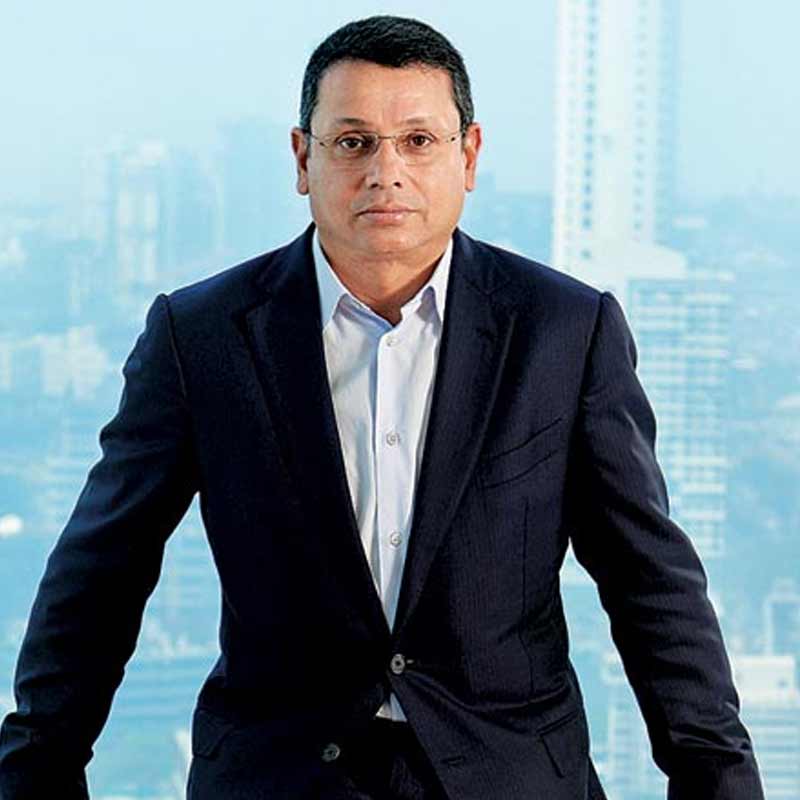Den denies being taken over by Star India
MUMBAI: In a letter to the stock exchanges, the Sameer Manchanda led Den Network Limited (Den) has denied news item a
NEW DELHI: The broadcasting industry today made a strong plea to the government to notify the self-regulatory mechanisms of the news broadcasters as well as the general entertainment TV channels - the News Broadcasters Standards Authority and the Broadcasting Content Complaints Council.
This was reiterated by various broadcasters including Indian Broadcasting Foundation president and Star India CEO Uday Shankar and News Broadcasters Association president and NDTV vice chairman KVL Narayan Rao.
Addressing a session on Content in the one-day ‘CEOs in Broadcasting‘ meet organised by the Confederation of Indian Industry and later addressing a press meet, Shankar said that notification will enable the two bodies to also exercise self-regulation with regard to channels which were not members of these two bodies. He pointed out that the Advertising Code drawn up by the Advertising Standards Council of India had been notified under the Cable TV Networks (Regulation) Act and therefore it had official sanction.
He said the TV industry had never opposed regulation, but had always held the view that the regulator should be an independent body and not the government. "We wanted neutral qualified people and not controlled people from the government". He and Rao were satisfied that the government had supported self-regulation and given it a chance to work.
Shankar said we cannot curb creativity, but have to prevent "dirt" from coming in. He said the BCCC had already proved to be very effective in this regard as channels had complied with the verdict of the Council headed by Justice AP Shah.
Referring to the quality of talent on the channels, Shankar said that with high carriage fee and other expenses, channels were left with little money to get high quality talent.
Rao said the NBSA had been in existence for over three years now and had worked very well, with channels generally complying with the directives of Justice JS Verma. He said the NBSA was not just a complaints body but unit for improving standards. Around 3000 complaints had been dealt with satisfactorily so far in an exemplary fashion, even with penalties being imposed.
Actor Shabana Azmi, who is a member of the BCCC, said that the Council had been working very satisfactorily so far and broadcasters also took it seriously. She said the members had also gained experience in understanding the responsibility of being part of a self-regulatory body.
She said it was interesting that the Government tended to forward to BCCC complaints relating to kissing scenes or scenes of that kind, while the complaints received from the public tended to relate to excessive violence.
Centre for Media Studies director PN Vasanti, who had been instrumental in drawing up the Content Code on behalf of the Information and Broadcasting Ministry in 2007, said a monitoring body working with the CMS had come across over 3000 violations.
She wanted the two self-regulatory bodies to create greater public awareness by putting all their verdicts on the websites. She also felt that the two bodies had to work with the government - ‘there are no two ways about it‘.
NBA Secretary General Annie Joseph said that the Electronic Media Monitoring Cell of the Ministry had also begun forwarding complaints to the NBSA.
NewsX Editor-in-Chief Jehangir Pocha wanted clarification on what is news and what constitutes views and said standards should be drawn up for this.
Broadcast Editors Association and NDTV‘s Pankaj Pachauri said self-regulation should not ‘merely work, but should be seen to be working‘. He wanted the bodies to increase the reach to non-members.
Times TV Network MD and CEO Sunil Lulla said there was need to be more public about the action taken by the bodies.
Speaking at the press meet, CII Media and Entertainment Committee chairman Amit Khanna described digitisation as a huge step forward and said the byword would now be pay TV and channels would not be driven merely by advertising and the race for TRPs.
He pointed out that the government also stood to earn Rs 60 billion additional revenue with the coming in of digitisation. Piracy would also become difficult, he added.
He supported the stand of the two regulatory bodies for a statutory status.
Answering a question, he said the Telecom Regulatory Authority of India would decide the basic tariffs after digitisation, but this would be done after issuing a consultation paper and eliciting the views of stakeholders.
Den MD Sameer Manchanda expressed satisfaction that I&B Secretary Uday Kumar Varma had committed that the sunset dates would be met.

 switch
switch
 switch
switch